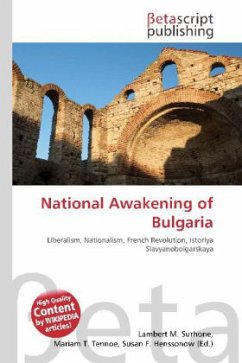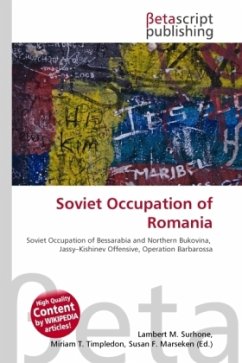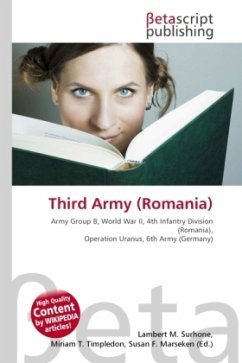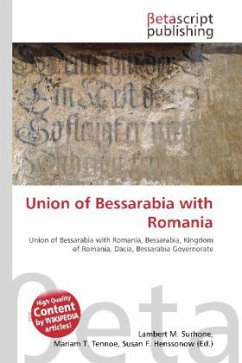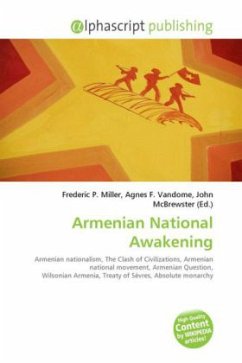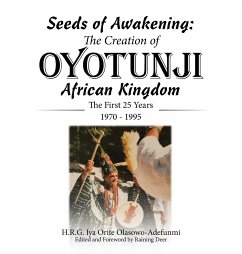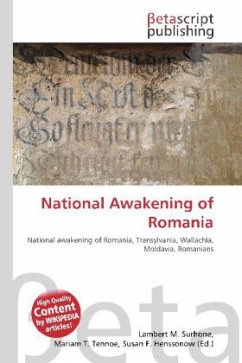
National Awakening of Romania
Versandkostenfrei!
Versandfertig in 6-10 Tagen
26,99 €
inkl. MwSt.

PAYBACK Punkte
13 °P sammeln!
Please note that the content of this book primarily consists of articles available from Wikipedia or other free sources online.During the period of Austro-Hungarian rule in Transylvania and Ottoman suzerainty over Wallachia and Moldavia, most Romanians were treated as second-class citizens (or even non-citizens) in their country. In some Transylvanian cities, such as Bra ov (at that time the Transylvanian Saxon citadel of Kronstadt), Romanians were not even allowed to reside within the city walls.The Romanians looked for support firstly from Russia, whom they thought would help the Romanian Or...
Please note that the content of this book primarily consists of articles available from Wikipedia or other free sources online.During the period of Austro-Hungarian rule in Transylvania and Ottoman suzerainty over Wallachia and Moldavia, most Romanians were treated as second-class citizens (or even non-citizens) in their country. In some Transylvanian cities, such as Bra ov (at that time the Transylvanian Saxon citadel of Kronstadt), Romanians were not even allowed to reside within the city walls.The Romanians looked for support firstly from Russia, whom they thought would help the Romanian Orthodox people in their struggle against the Islamic Ottoman empire. However, Russia''s expansionist goals after annexing Bessarabia in 1812, made them suspicious that they would just become part of another far-flung empire. Since Austria also had similar goals, as shown by the annexations of Oltenia (1718-1739) and Bukovina (1775), the Romanians started looking for allies in Western Europe.



